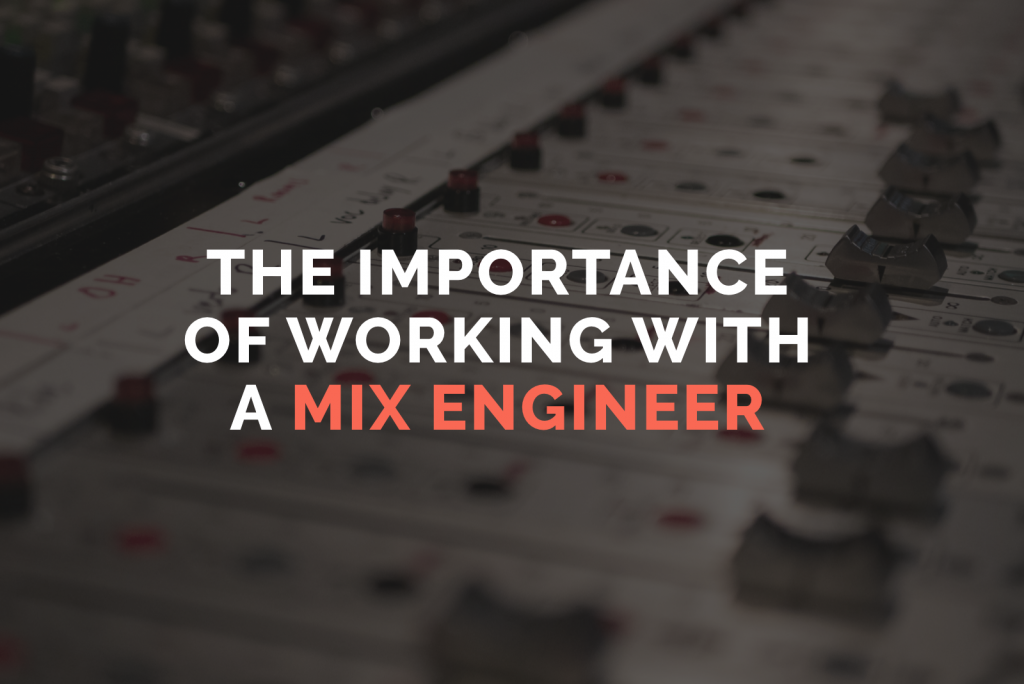The Importance Of Working With A Mix Engineer
This is a guest post by top rated AirGigs artist Aubrey Whitfield
Everyone wants their songs to sound the best they possibly can, and many artists turn to music producers to make this happen for them. Working with a good music producer is the first important step in your journey as an artist – it is where you begin pre-production, start to develop your own sound and where your basic ideas come to life.
But there is a very important second step that is often neglected – and that is getting your song mixed by a professional mix engineer. Every song you listen to in the charts has likely gone through three stages of production, and in the following order:
Production
This is the first stage of the process where a producer will work with the artist to record the production of a song by adding instruments, recording vocals and turning basic ideas into a record.
Mixing
Mixing is usually a completely separate process undertaken by mix engineers (some mix engineers are also producers). Mixing is the process of blending all the individual instruments in a song and is achieved by balancing the levels of the instruments, applying effects such as reverb, compression and equalization (EQ) with the aim of making the song sounding as good as possible; and
Mastering
This is the final stage of the production process performed by trained mastering engineers, often undertaken in specialist mastering studios. Mastering involves balancing the sonic elements of the whole stereo mix and ensuring that it plays consistently across all music systems and media formats. It is considered to be the ‘magic fairy dust stage’ of the process. However, mastering cannot fix a bad mix!
It has become increasingly common for Music Producers to perform all three of these roles on a single song. Almost like a one-stop-shop service. Whilst many producers are also good mix engineers, mixing and mastering are specialist skills. Not only that, but having a fresh pair of ears on your song can really make a difference to the end product.
So let’s take a look at some of the benefits of working with a mix engineer on your next record:
Take your song onto the next level: A good mixing engineer can take a good production and make it brilliant by bringing all the elements in the song to life whilst achieving a smooth blend. Mix engineering is very different to producing and so mix engineers are often specialists with different training and skills to producers;
Get a better production: Using a separate mix engineer will free up your producer to focus on their key skill set, which is to produce the song to his/her best ability. This gives them more time to get the smaller details right and produce a brilliant production;
A fresh perspective: A fresh pair of ears on your track can only be a good thing! Whilst producing your track, the producer may lose objectivity on the balance of the song and is therefore unable to make good mixing decisions later on. So let the producer focus on producing and the mix engineer on the mixing;
The right equipment: Skilled and experienced mix engineers may have equipment, software and specially soundproofed rooms for mixing that your producer might not have, therefore ensuring that your song gets the best mixing treatment possible;
Be fair to your producer: whilst many producers offer a production, mix and master as standard, this is a huge amount of work for one person, and the majority of producers don’t reflect this in their fees. Do your producer a favour by saving them twice as much work than they need to do!
When looking for a mix engineer to work with, start by listening to their showreels to get a feel for the style of music they mix. Mixing sessions are usually unattended – meaning that the mix engineer works in isolation. So that means you can work with a mix engineer anywhere in the world.
Also, don’t be put off by the fact that a mix engineer doesn’t yet have big credits under their belts. There are brilliant mix engineers out there who can deliver just as good a mix as the major mix engineers. You just need to find them!

